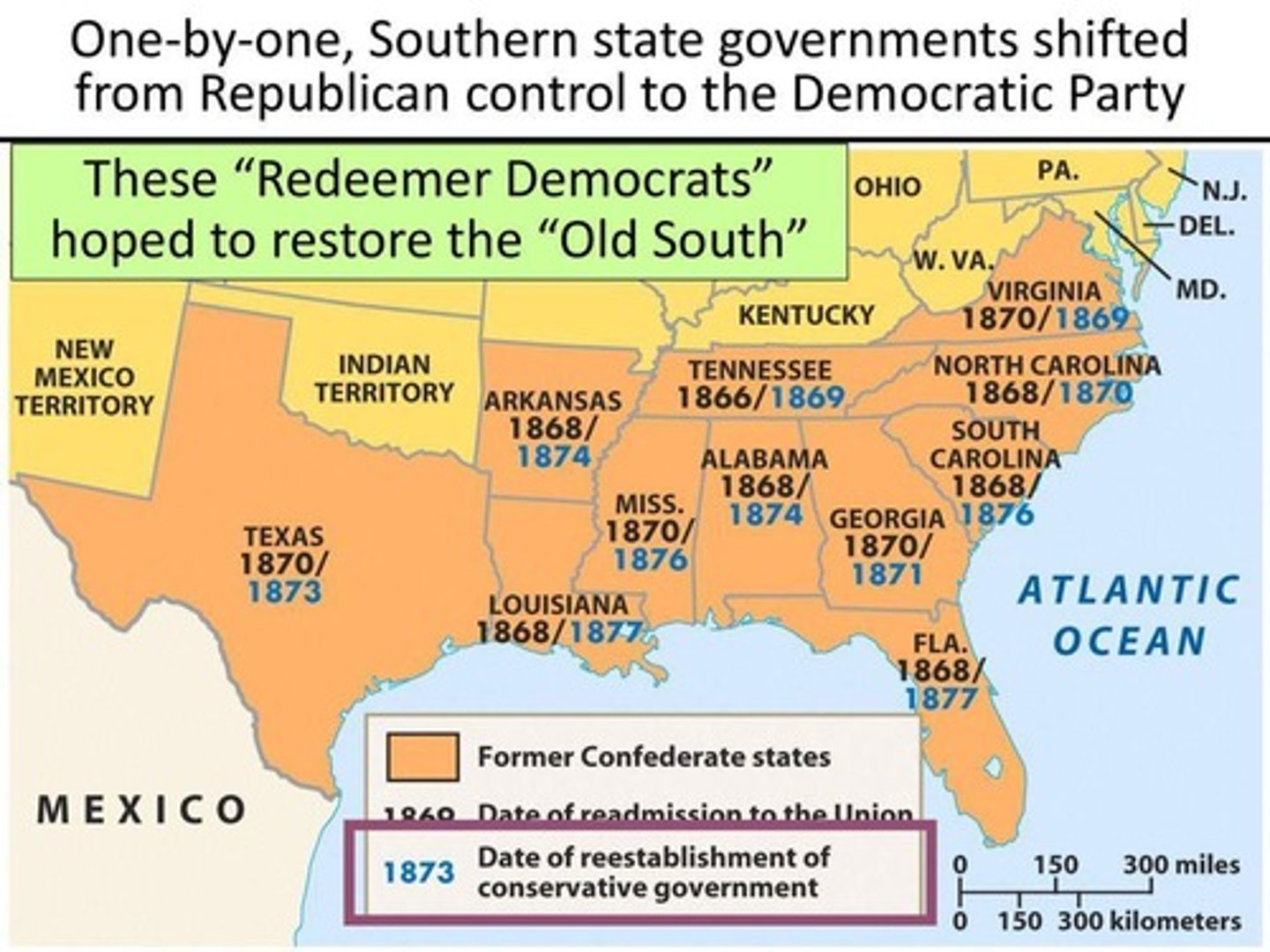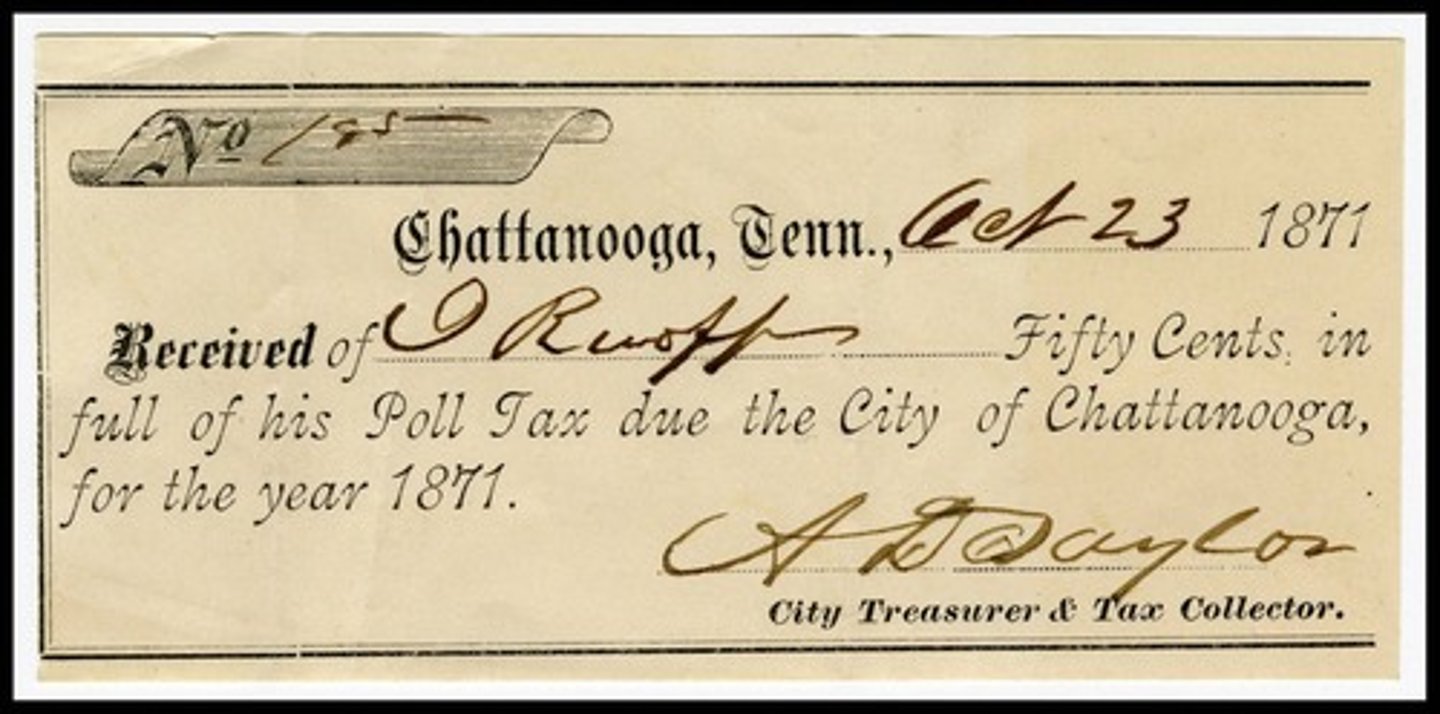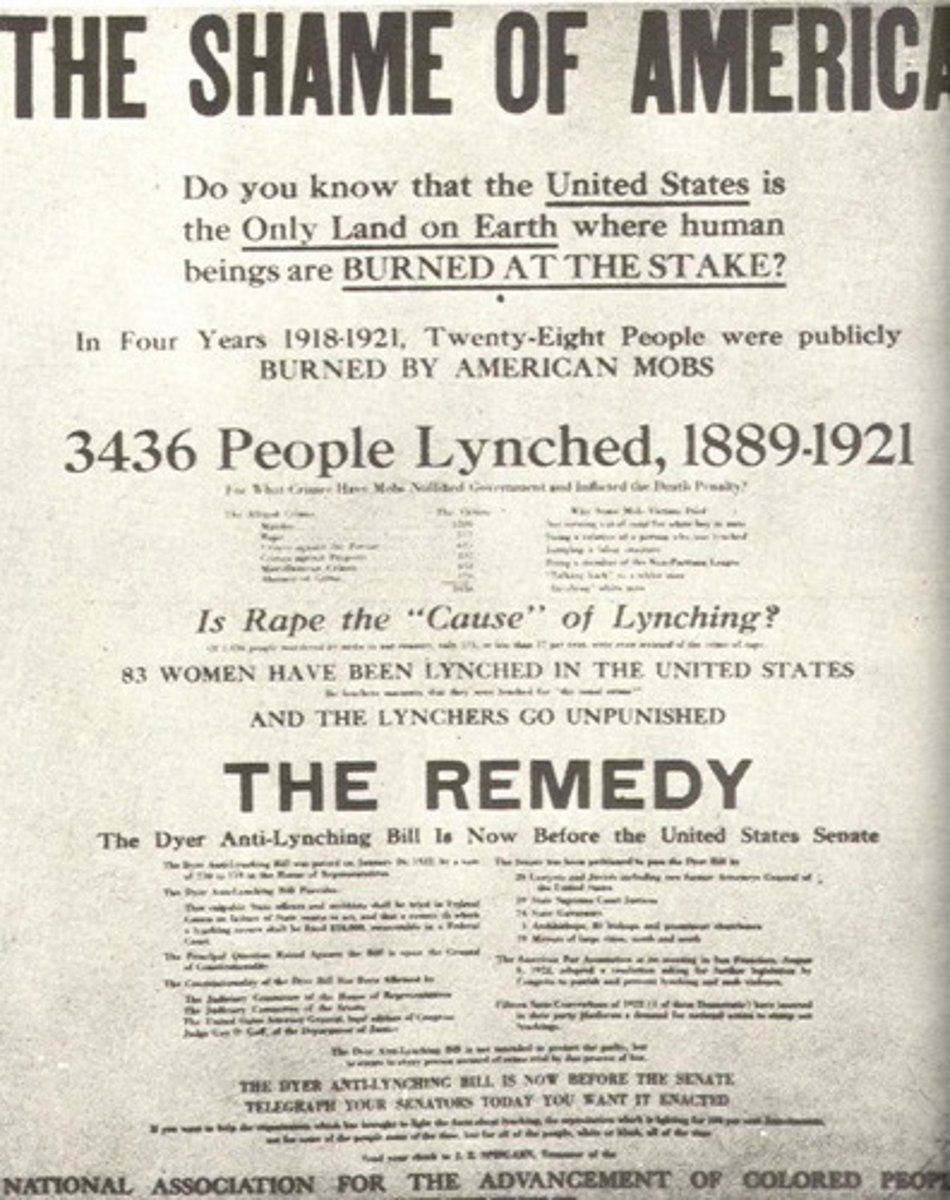Reconstruction and Jim Crow Era in the South
1/22
There's no tags or description
Looks like no tags are added yet.
Name | Mastery | Learn | Test | Matching | Spaced | Call with Kai |
|---|
No analytics yet
Send a link to your students to track their progress
23 Terms
Reconstruction
Period of Southern control by Republicans (1865-1877)
14th Amendment
Granted citizenship and equal protection to all.
15th Amendment
Prohibited voting discrimination based on race.
Military Occupation
Federal troops enforced laws in Southern states.
Freedmen's Bureau
Assisted freed slaves with education and employment.
KKK Violence
Terrorist acts by Ku Klux Klan against African Americans.
Redeemers
Southern Democrats reclaiming control post-Reconstruction.

Election of 1876
Controversial election leading to end of Reconstruction.
Jim Crow Laws
State laws enforcing racial segregation (1877-1960s).
Plessy v. Ferguson
1896 case upholding 'separate but equal' doctrine.
Disenfranchisement
Methods used to deny African Americans voting rights.
Poll Tax
Fee required to vote, implemented in Georgia (1877).

White Primary
Only whites allowed to vote in primary elections.
Grandfather Clause
Exempted voters from literacy tests if ancestors voted.
Literacy Tests
Assessments to restrict voting rights for African Americans.
Lynching
Public murders used to enforce white supremacy.

Ida Wells
Anti-lynching activist and NAACP co-founder.
Booker T. Washington
Advocated for economic gains before civil rights.
Atlanta Compromise
Washington's strategy for African American progress.
W.E.B. Du Bois
Promoted immediate civil rights and political equality.
New South
Vision for economic diversification beyond cotton.
Birmingham Steel
Example of industrial growth in the New South.
Children in Labor
Over 22% of Southern textile workers were children.